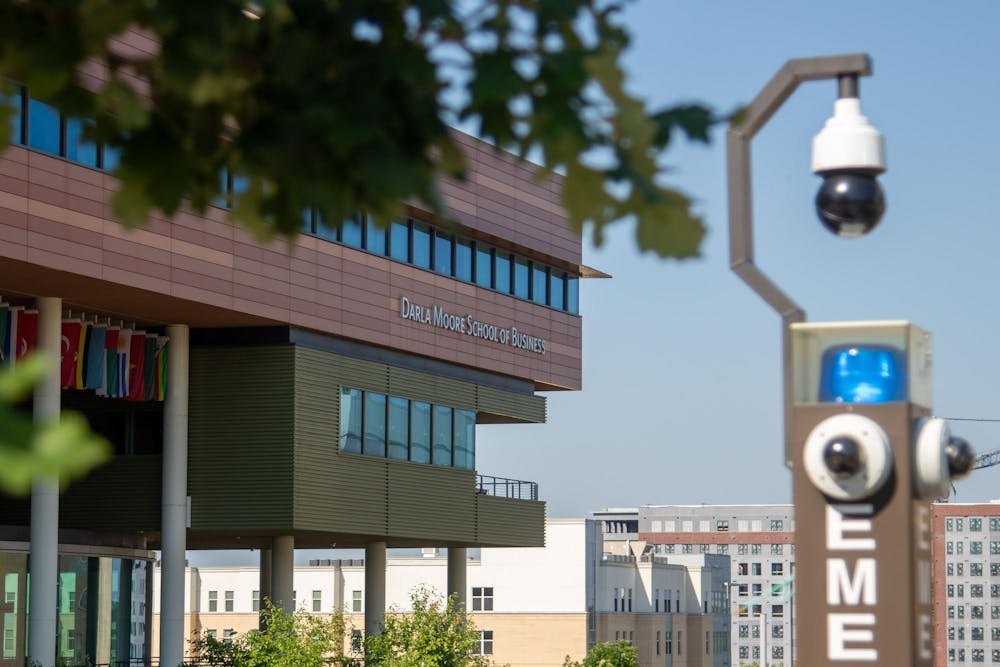A new opportunity for USC students working towards bachelor's degrees was created at the beginning of the 2023-2024 academic year.
The Interdisciplinary Undergraduate Certificate Program launched in the fall of 2023 with the digital studies certificate. In the spring of 2024, three more certificates for data analytics and visualization, project leadership and management, and strategic thinking and communications were added to the program.
These certificates allow undergraduate students at USC to take four classes, or 12 credit hours, from a variety of different courses whose core requirements fall under one of those four programs. Upon graduation, students will receive a separate certificate for the program along with their diploma.
Members of the Interdisciplinary Advisory Committee (IAC) who created the program said students who earn a certificate will gain new skills and an added boost to their resumes when it comes to applying for jobs after college.
The idea originated from University President Michael Amiridis, who worked with Provost Donna Arnett to create different job skill sets that, based on national research, would help prepare undergraduate students for future careers.
Amiridis and Arnett would later form the IAC to create certificate programs that drew from classes and programs across the university that corresponded to the created job skill sets.
Karen Edwards, interim dean of the College of Hospitality, Retail and Sport Management and a member of the IAC, said the committee was composed of faculty from across the university.
“This group of faculty leaders got together and started looking at what ways we could provide and deliver something meaningful for our students,” Edwards said.
After their initial meeting, faculty leaders then took the idea to their respective colleges and departments to see if each entity wanted to be involved in the new program before meeting again as a committee.
“A lot of units were pretty excited and put forth a whole bunch of courses, but we really did narrow it down to ones that, when put together, from this kind of 'à la carte menu,' would equal a meaningful learning experience for our students,” Edwards said.
Shelley Dempsey, assistant provost for graduation and retention and co-chair of the advisory committee, said that one of the main goals of the program is to provide a boost for new graduates when applying for jobs.
“You want to make sure our student that has the degree is gonna be the one that gets hired, and that's because they are workplace ready in terms of already having those skill sets that the certificates give them that are above and beyond what they're getting out of the coursework for their major,” Dempsey said.
Each of the four programs is interdisciplinary, which means that classes offered for the certificate come from various university programs and colleges. Making the program interdisciplinary allows prospective students to earn the certificate without adding on extra time for graduation.
“We wanted to make sure that anything that we did was not going to add time to a degree for a student," Dempsey said. "It's important that the 12 credit hours for each of these four undergraduate certificates are things that can also be counted towards your major, maybe towards your minor."
Edwards said the certificate also allows students to meet important figures and learn about the topics in their chosen certificate in more depth.
“If they take a whole course in that (their field), they really get more in-depth knowledge from the experts in that area," Edwards said. "This exposes students to experts in the fields that they may be looking into or that might help them in their career.”

College of Information and Communications advisor Kelsey Ashford said the certificate benefits students whose majors cover a wide variety of topics, like mass communications, because they can gain more niche skills to help them when applying for jobs.
She added that that it’s important for students to elaborate on how specific classes taken for the certificate helped provide them with more skills that you can use in their chosen career path.
"In this particular program, I took a class called Law, Ethics and Mass Communications or Internet and Social Media Law... which taught me how to think in a different manner when dealing with people and populations and knowing the law and how that relates to certain people," Ashford said.
Both Dempsey and Edwards urged students to meet with their advisors to discuss earning a certificate when they graduate.
“This is put together to make your career trajectory better, and we highly recommend that you get with your academic advisor to make a plan so that you can take advantage of this great opportunity,” Edwards said.

